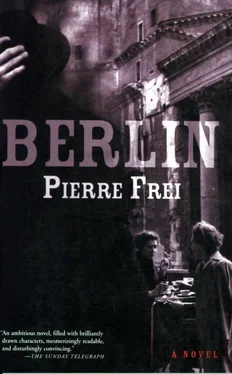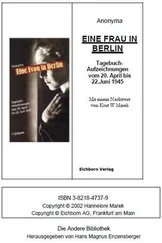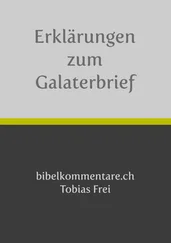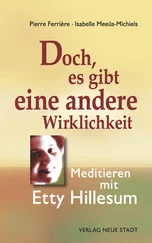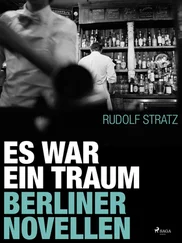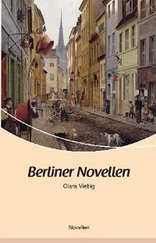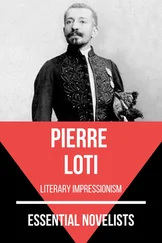'Herr Miihlberger. well, here we are together again sooner than I expected.' said inspector Dietrich, who had been listening in from the next room. 'The car, Franke.'
'In the workshop, sir. The ignition's done for.'
'Oh, all right. You get more out of life riding a bicycle. You hold the fort here, Franke. Come with me, Herr Miihlberger.'
Twelve minutes later they had reached their destination. 'There, that's him in the entrance,' whispered Miihlberger, although it was impossible for the man to overhear him at this distance.
'Hold my bike.' Klaus Dietrich left the road and crossed the sandy strip to Number 198. The man was sitting on the front step outside the door. 'Inspector Dietrich, CID. What's your name?'
The man stood up. 'Giese. Franz Giese. I was meeting Lene, I'm a bit early. So I'm just waiting for her.'
'For Marlene Kaschke?'
'We've waited years, Lene and me, and now we've found each other again at last, it was the day before yesterday, and we swore nothing would part us again.'
'You were here the day before yesterday?'
At four in the afternoon. She made some nice titbits for us to eat, and we drank sparkling wine. We made love till late.'
'You stayed all evening, Herr Giese? Till when?'
'Till the last U-Bahn left.' Mdhlberger pushed the bicycles closer. Dietrich waved him away. Giese sat down on the step again. 'She's a good woman. She's been through a lot, even if she doesn't talk about it.' He paused for a while, as if there was no more to be said. Then he looked up at Dietrich, with torment, despair and hopelessness in his face. 'Who did it, inspector?'
Klaus Dietrich had seen soldiers' bodies torn to pieces and hanging in Russian birch trees; he had heard the screams of tank crews burning to death in their vehicles, and the whimpering of dying women and children in blazing cottages. But it wasn't wartime any more, where even the worst horrors became routine, and this grown man's quiet, grief-stricken voice moved him more deeply than anything he had seen. He laid his hand gently on Giese's head, he didn't know why. 'We'll find him, I promise you, Herr Giese. You can help us. Come and see me at the police station. This is the address. Good day. Herr Giese.'
Muhlberger had moved the two bicycles within earshot, and didn't let a word escape him. The inspector went to take his own bicycle back, but Muhlberger clutched it. 'Put that murderer behind bars!' he urged shrilly. 'You want to lock him up, you do!' Dietrich angrily liberated his bike from the man's grip and rode off.
Sergeant Franke struck his hands together in dismay. 'You let him go?'
'I asked him to come and see us in the next few days.'
And you seriously believe he'll accept your invitation?'
'He'll come. He's not the murderer.'
'Muhlberger saw him in the stairwell at almost exactly the time of the crime, inspector. There can't be that many men with dimples in their chins.'
'He saw Franz Giese coming downstairs, that's true. Giese himself doesn't deny being with Marlene Kaschke from four in the afternoon until just before curfew. Two lovers, Franke, who had found each other again. Tenderness in the air, and the hope of a wonderful future together. And the murderer arrived only a few minutes later.'
Who, sir? Who was he?'
'I don't know. But I have a kind of feeling that we know him.'
Hendrijk Claasen lived four houses away from Ben's grandparents. He was cleaning his Triumph in the front garden.
'Evening, Herr Claasen,' Ben greeted him politely. He tapped his school bag. 'Five cartons of Philip Morrises, is that OK?'
The Dutchman put the sponge down on the saddle of his motorcycle. 'Come in.' They entered the house. Claasen disappeared up to his shoulders in the sideboard and came out again with a pair of shoes. 'Brought them back from Nijmegen on my last trip. Try them on.'
Ben cautiously stroked the velvety brown suede and pressed the thick crepe soles, testing them. 'Oh, wow!' he groaned, overwhelmed. The fact that the shoes were half a size too big did not lessen his delight. Claasen cut insoles out of several layers of newspaper. Ben slipped the shoes on. Doing up the laces was like a ritual act. The first steps were a revelation. He walked across the room as if on cotton wool. Carefully, he took the shoes off again. They would get their baptism at the same time as the suit. Only two more weeks, Herr Rodel had said.
THE CRIMEAN ORANGE crop was particularly good this year. Consequently, the manager of the Red Sun kolkhoz arranged a celebration in honour of the victorious Red Army, and after delivering a stirring speech, which was followed by some rousing songs performed by a choir of Young Pioneers from Odessa, he sent a cart full of the deliciously aromatic fruits on its way 'to our brave sons in the conquered capital of the Fascist enemy'. His calculated move was noticed by the Soviet press and inflated out of all proportion. Soon the word was that a dozen freight trucks of oranges were on their way to the West — a welcome alibi for the manager, who then sold the lion's share of the harvest on the black market at a hundred times its proper price.
The single cart of citrus fruit did in fact reach Berlin. By that time half the oranges were rotten. The Soviet city commandant had the other, edible half distributed to soldiers with families. Two crates ended up in the hands of the cultural officer, Lieutenant-Colonel Talin. He was not a family man, but was very fond indeed of a young blond dancer, a soloist called Heinzotto Druschke, and gave him one of the crates.
Druschke had survived the Hitler era in the bed of a high-ranking SS officer, thus preserving himself from the concentration camps. 'Pure selfdefence. The man had shocking bad breath,' he drawled to friends after the liberation of the city. As a victim of Nazi persecution he received an apartment on Eschershauser Weg in Zehlendorf, where he exchanged the oranges with his neighbour Frau Molch for two bottles of cherry brandy. He intended to use the sweet, sticky alcohol to pull young boys.
The crate of oranges, along with two smoked hams, ten hundredweight of coal briquettes, three hundredweight of potatoes, five litres of cooking oil, and two kilos each of pearl barley, dried peas and haricot beans were the price paid for Frau Hermine Hellbich's Persian lamb coat. 'I have my good, thick-wool coat,' she explained, embarrassed. The boys need something hot and nourishing in winter, and it won't do the rest of the family any harm either.' She had even acquired six packets of Stella cigarettes for the district councillor.
She put five of the oranges in a bag. 'Take that to your father at the police station,' she told Ralf. 'The vitamins will do him good.'
Ralf hurried off. Perhaps he'd get to see a handcuffed criminal at the police station. But Papa was just sitting at his desk. He took the oranges with pleasure. 'What a nice surprise. Have one yourself, Ralf. And sit quiet in the corner until we're finished. Would you like one?' The inspector offered the bag to Sergeant Franke. 'So what else is new?'
'Orders from the top brass, no raid on those black marketeers at Schlachtensee station like we planned. Seems they're displaced persons and we can't touch them. Riffraff, if you ask me, inspector.'
'Looks as if our hands are tied there. So let's keep concentrating on the search for our man.' Klaus Dietrich put a segment of orange in his mouth, pressing it against his palate with his tongue until the cells burst. The delicious, refreshing juice ran down his throat. Another one, Franke?'
'Thanks very much. I'll take it home to my wife.' Franke tied the precious fruit up in his handkerchief. 'Take my word for it, inspector, when we find that motorbike we'll find the murderer too.'
Читать дальше
